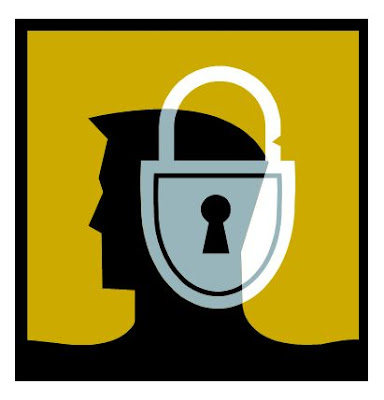"Of course, I'm not evaluating any of this logo situation in any professional capacity - I blog solely as a private citizen and taxpayer. But I do access general life lessons in my thought processes, as every private citizen does."
After subsequently getting into a lively off-post debate with a local journalist regarding the fact that I don't openly state my identity on this blog, I thought I'd explain the difference between personal contribution and professional contribution and the impossible position in which those of us who endeavor to make *both* types of social contributions currently find ourselves.
Simply put, society hasn't provided us with a reliable means of declaring the difference between professional representations for which we are fully liable, and personal opinions and perceptions that we hold as private citizen taxpayers. The internet in particular furnishes absolutely no means of differentiating between these two. For that reason, those of us who are professionals are put at substantial undeserved risk every time we utter a viewpoint in a public forum.
Do you doubt these interpretations? Observe how the liability impacts extend even into the lowest rungs of the employment realm. How many times have you heard about someone having their employment terminated because they made some after-hours brain-fart comment on Facebook? There's a blogsite devoted to tracking some of those cases. This woman got fired simply for calling her job "a joke". She was held to the extremity of liability simply for stating a personal opinion on her own time (the very same opinion that about 90% of the rest of us will also declare at some point in our careers). Case law will eventually sort that kind of thing out, but right now, there isn't a robust legal precedent for defending ourselves against this kind of reprisal.
Oh, but it gets even worse. Case law suggests that bloggers aren't even entitled to claim established journalistic protections. And then, of course, there's the issue of SLAPP suits. I could go on and on.
So after acknowledging the breadth and depth of these very real risks, bloggers and blog contributors are left with only two valid choices:
- Don't blog at all. Go through public life manifesting a professional identity only. Don't share any insight or viewpoint or make any social contribution beyond working and paying taxes.
- Blog, but minimize the associated risks. Find a means of preventing disparate professional and personal representations from becoming inappropriately associated. Stop those two unrelated facets of identity from contaminating each other, given that society is currently not equipped to reinforce any part of this distinction on our behalves.
For that reason, I chose Option 2. The task that then remained was to identify the mechanism through which cross-contamination could be prevented while still maintaining a verifiable authenticity and a supportable ethic.
One of the best precedents I've identified to date figures prominently in the very popular Houston Chronicle blog SciGuy. The blog author has one scientific cohort in particular who makes significant contributions without revealing his identity to the public. The journalist knows who his contributor is, the newspaper has vetted his credentials, and he's known to blog-related third-party experts as well. But as a contributor, he simply cannot run the risk of having either his well-known guest posts or his comments be construed as reflecting any views or positions of his employer. His employer could retaliate against him for that just as easily and as swiftly as employers can people like tuna for farting on Facebook.
In other words, he could lose his job simply by making honest and conscientious and well-informed contributions to the public dialog on his own time and for no compensation. That's horrifying and an unacceptable risk, and so this lesser-of-evils approach of anonymity was adopted in the case of SciGuy.
And what a tragedy it would be if instead that contributor's voice had to be silenced because of our regrettable social circumstances. I'm grateful that those folks got together and formulated this workaround of qualified anonymity. I've learned a great deal from SciGuy over the years, and my learning would have been profoundly diminished if that contributor had instead been silenced according to Option 1 above.
And so I have deployed a similar tactic. The commercial news media knows my identity. Many of my neighbors know my identity. Key employees and elected representatives within League City know my identity. I never initiate or respond to a serious email without volunteering information regarding my identity. But I can't do it here, on this blog. At least not until society begins granting folks like me reasonable protections that are in accordance with common sense and general decency.
 |
| Sorry, folks. It's not fair and it's not ideal, but the cards are simply stacked against us right now. --Your friendly neighborhood blogger. Microsoft clip-art. |

No comments:
Post a Comment
I'm forced to moderate comments because the spammers have become too much for me to keep up with. If you have a legitimate comment, I will post it promptly. Sorry for the inconvenience.